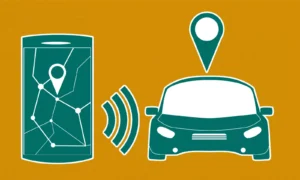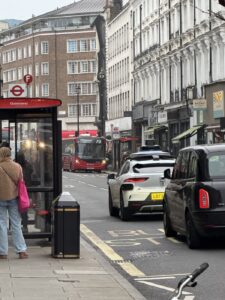New research suggests that a number of the perceived benefits of using driverless cars may not actually be achievable, because people get motion sickness.
WMG at the University of Warwick told an ITS (UK) meeting there that activites such as working on a laptop, reading, watching films, texting or emailing all have been found to trigger sickness for a significant number of people when travelling in a driverless car.
This could dramatically change the economic value driverless cars could have, given that projections are based on how much productivity could be improved by people doing tasks other than driving.
Joseph Smyth from WMG, University of Warwick explained that all participants experienced at least moderate motion sickness whilst reading as a passenger in a self-driving car study.
However, his research has found that people can be trained to get over the effects. In tests, people coped much better once they’d undergone a series of training tasks similar to brain training puzzles.
























